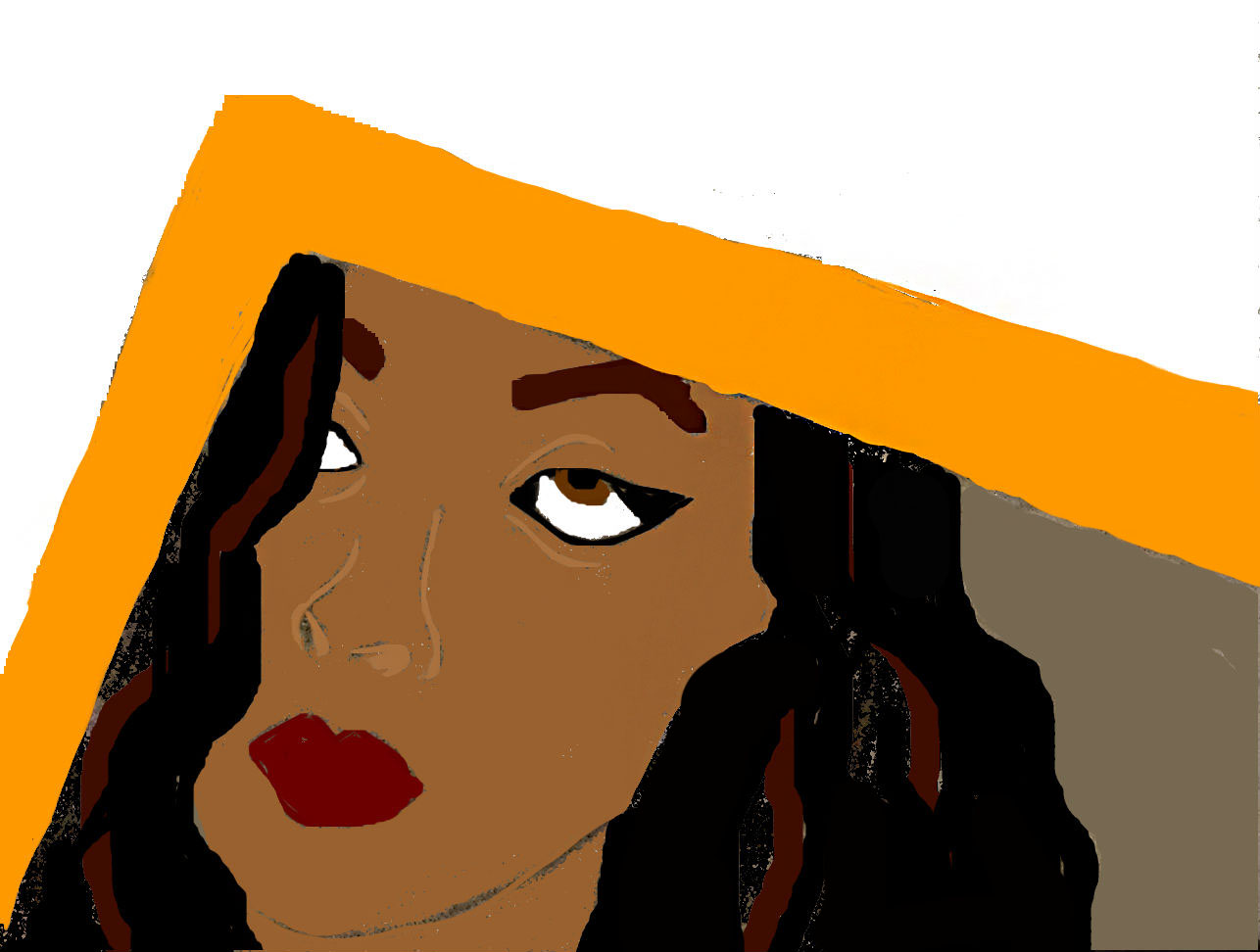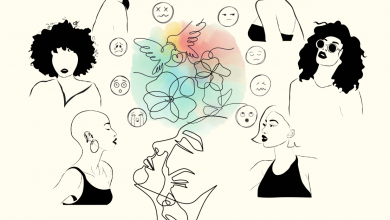The Coming-of-Age Film Wasn’t Written for Me

Illustration by Mrinaalika Sivakumar.
Movies aren’t diverse. I know this has been talked about before. The erasure of people of color is not an uncommon topic. But the lack of diversity is so much more apparent in the coming-of-age genre. It’s easy to fit in a black guy in a thrilling sci-fi film, even if he’s only the sidekick. It’s easy to have a badass Asian girl in an action movie, even if she’s constantly fetishized. But this superficial diversity that so many of us have fallen for isn’t even considered in “indie” movies. These coming-of-age movies aren’t meant to be outlandish and fun, these movies are meant to hit you because these movies are meant to be realistic. These movies are meant to showcase our entire lives and the ups and downs of that. And it’s not easy to fit even the flimsiest diversity into that kind of realistic film, not even as a fetishized sidekick.
One of the silliest yet most prominent problems in my life has been the “indie movie” complex I somehow brought into my life. A complex in which I desperately tried to live out the scenes of the stunning movies I loved so much. I’ve loved these pretty films about some mediocre white kid just existing; somehow finding himself and the true meaning of life, accompanied by an obscure yet beautiful soundtrack.
Think “Garden State,” “Stuck in Love,” “Liberal Arts,” approximately all Wes Anderson films, “American Beauty,” and so on. These are the movies that remind me that in the end everyone is just living, and that everything is going to be okay. That if I don’t have certain parts of my life figured out, that’s normal. These movies are analyses of people in their simplest form. They aren’t action-packed with fight scenes and superpowers; they don’t necessarily have happy endings with happy couples and happy families. We see the relatable parts of life in between the dialogues and the silences. Plot lines that show real people facing real situations that you will experience some form of in your own life. Incorporating this idea and this introspection into film is fascinating and genuine to me, and I will always be moved by it.
But it took me a long time to realize that I’ll never be given the chance to live one of the scenes in “Kings of Summer” or “The Spectacular Now.” I can put in my headphones and blast pretty songs and stare at the sky and live my life to my definition of the fullest, but something constantly keeps me from identifying wholly with these movies that I love so much.
Why is that?
Because those plot lines really only apply to the most privileged of people. The white man with enough money to sit around being awkward and “out of the ordinary” and mope about it until something good happens to him. The white man who gets to be a socially awkward creep and it somehow becomes romanticized. The audience falls in love with him for it. He finds a beautiful white girl that lives to save him from his problems, or she’s just as socially inept as he is and they fit together perfectly in their own imaginary world. This girl has pale skin and perhaps a quirky feature here and there, but she is the epitome of white beauty.
And throughout the film, the characters do almost nothing at all, yet somehow, an adventure falls into their lap. And once they embark on their adventure, all they really do is just walk through it. There are beautiful scenes and stunning images and these beautiful white people get to experience all of it and feel changed. When the movie comes to an end, our characters have overcome their challenges. The opportunities that weren’t necessarily in their hands before have suddenly been placed in front of their feet. There is hope for a happy, beautifully breathtaking future of content mediocrity.
Women of color don’t have the luxury of not adhering to society’s polite code. We’re already breaking the rules with our mere existence, and we can’t afford to come with more problems. We don’t get to be people with problems, people who are scared to love or people who love too hard and too fast. People who aren’t good at being emotional or people who can’t handle commitment. We don’t get to be the English professor who really impacts your life or the kid who needs his life changed. We barely even get to be the beautiful female character who lives for every word our white man says. But if we are, we are fetishized for showing him the world with our “exotic” backgrounds. We don’t get to experience the tiny ups and downs in life. We live to be a trope. The Indian doctor, the East Asian nerd, the sexy Latina, the black secretary.
Meanwhile, our main characters are always men. They are men with little personality and too much depth. They are quiet and they are gliding through life miserably, but we still love ‘em. Their female counterparts never have hair on their arms or bushy eyebrows. They don’t have big butts or big noses, they can’t have too much knowledge and they definitely can’t have too much pride. Our lifeless female is only here for our wonderful protagonist.
I know that realistically, these plot lines are barely plausible for the white man himself. But they are still options. Young white boys can look at a coming-of-age film and relate themselves to it. They can see themselves in it. And they can act however they want in order to fit into the characters they want to be. How much respect, appreciation, and love will I receive if I start to act socially inept and start disregarding other people in order to “figure myself out?”
I can only imagine how comforting and reaffirming it must be to see people that look and act like you every single day on every single media outlet. “Well, you shouldn’t need movies to validate your experiences!” True, but that’s how I am. That’s how thousands of Americans are; media is unavoidable. How come white people get movie after movie after movie reminding them that life is okay? Between “Bend it Like Beckham” and “Slumdog Millionaire,” I barely get one. It’s ridiculous that something I hold so near to my heart, film, refuses to relate to me on any level.
There is such a need for girls of color in coming-of-age movies. We don’t exist in any of them—We play no part in the lives of these white main characters, let alone do we live as a protagonist. Girls of color around the world are watching beautiful, meaningful movies that weren’t written for them. Yet they’re feeling pangs in their heart as they remember these scenes about white people growing up. White people falling in love. White people facing hardship. White people being beautiful. White people being happy.
We’re growing up too, but it doesn’t really matter.




